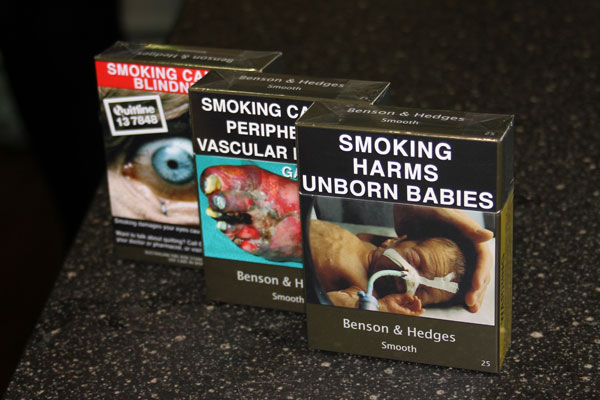Plainly not working

Critics contend that plain packaging has done little to reduce smoking rate in Australia.
Five years after Australia introduced standardized packaging on all tobacco products, data show that the policy has had no impact on reducing smoking across the country, according to a press note issued by Imperial Tobacco Canada through PRNewswire.
While the Australian government had admitted earlier this year that smoking rates had not declined since the introduction of standardized packaging – the first time the rates had not decreased in more than two decades – neither its Department of Health nor Canada’s normally-vocal anti-tobacco lobby had made any statements in response to the five-year milestone, the note said.
“We are not surprised that the data clearly indicates that implementing plain packaging has not worked in Australia,” Eric Gagnon, head of external and corporate affairs for Imperial Tobacco, was quoted as saying. “It’s time Canada recognized that efforts to legislate plain packaging will result in similar numbers.”
France, Imperial Tobacco said, had discovered the same. Tobacco sales had not decreased in the year since the country had introduced standardized packaging, and last week the country’s health minister, Agnès Buzyn, had stated in the legislature that “plain packaging has therefore not reduced official tobacco sales”.
“The answer to reducing the number of smokers is not, and has never been, plain packaging,” said Gagnon. “Plain packaging however does impact the sale of contraband tobacco products. Australia’s introduction of the legislation corresponded with a significant increase in the market share of illegal tobacco in the country, rising over 25 percent in the first two years [according to the KPMG report, Illicit tobacco in Australia 2016, https://home.kpmg.com/uk/en/home/insights/2017/04/illicit-tobacco-in-australia-2016.html].
“Plain packaging forces legal companies to abandon their symbols of legitimacy and makes it easier to counterfeit tobacco products. Canada must take a step back and look at the data. It’s the reasonable thing to do.”
Imperial said that as Canada’s Bill S-5, which mandates standardized packaging, moved to its second reading in the House of Commons, it wanted to remind legislators of the inefficiency of such packaging in other countries.
The company said that it supported the objective set forth by Health Canada to reduce the smoking rate to five percent by 2035, but believed the best way of achieving that goal was by offering consumers less-harmful alternatives.
“There is sound evidence telling us that vaping products are less-risky than traditional cigarettes, but they are currently illegal” said Gagnon. “Our government needs to embrace the harm-reduction model supported by other governments and public health experts, and provide Canadians with access to legal regulated vaping products as soon as possible.”